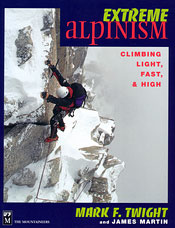Alpynisto wrote:By now you are probably confused by the buffoonery of the Chief. Suffice to say he's full of shit.
Here are some more confused buffoons that are also full of shit. They all staunchly speak of, practice intensely and promote VO2Max, Lactate Threshold, Short Intense Interval and Strength Endurance Training in their books and active training programs.
Some are even active DOD (SPECWAR) Consultants and teach the dudes that FORTMENTAL speaks of, this exact same "full of shit" training protocol:
Mark
 promotes it in all of Chapt 5 of his book:
promotes it in all of Chapt 5 of his book:
and has incorporated it as a very intricate component into his phenomenal elite climbing and ultra-endurance training program where some of the best alpinist/climbers that have set speed records at altitudes, go to train, prepare for and get/stay fit at:


This dude
 speaks of it for extreme ice work at altitude in his great training & technique book...
speaks of it for extreme ice work at altitude in his great training & technique book...
Let's not forget this buffoon either. Even Ed
 has incorporated it into his year round training routine.
has incorporated it into his year round training routine.
This full of shit dude shares his personal training routine. Though not "altitude" specific, he promotes just this type of short intensity VO2 Max endurance training as well in the last chapter of his in depth book...

BTW, M Twight participated in the local Big E-Challenge a couple of years ago. Ran into him at the end on Day 2 in Big Pine. Asked him what he thought of the deal, his reply was simply..."This is the real deal and it definitely kicks the living shit outta ya!"
Here is what the buffoon full of shit Twight
 has to say about all this....
has to say about all this....
"Yeah, a diet of 20-minute workouts got me through the Iron Horse Classic and the Everest Challenge ... and if you believe that I know a guy who's selling a bridge ..."
Oh yeah, almost forgot, this Buffoon speaks of and promotes it throughout his classic training book

So I think I will stay in line and company with these buffoons that are all soooooooo full of shit as well.
***PS: This training protocol isn't for everyone as it takes hardcore discipline, mental/physical consistency and dedication in order for it to be effective.***




